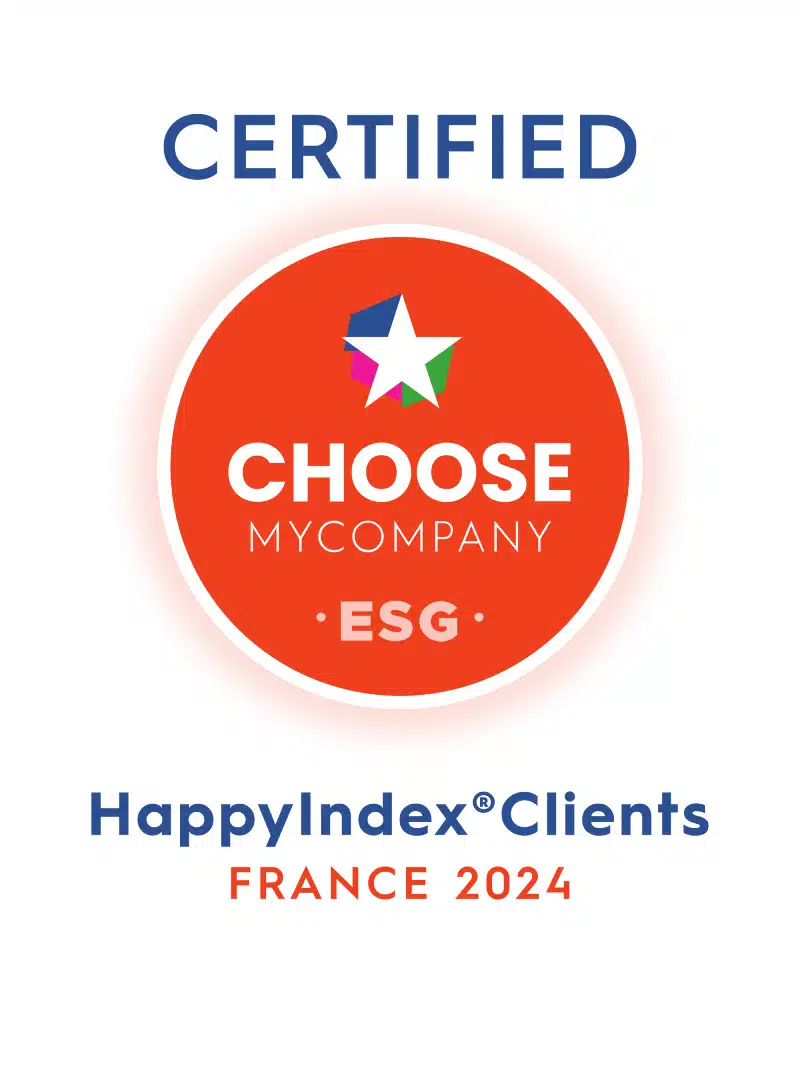2. Responsibilities towards our Clients and Suppliers
The Dékuple agency considers its clients and suppliers as partners. We are convinced that trust, respect, and stability in our relationships with clients and suppliers lead to greater performance of the projects carried out, in a shared interest.
Beyond the scrupulous respect of legal commitments and the commitments made with our partners, we place transparency at the heart of our client and supplier relationships. We announce budgets and schedules honestly and reasonably from the start of the projects. We do not compromise on the quality of productions and strictly adhere to the established specifications, which we help to clarify with our partners.
As a consulting service provider, we consider it essential to inform our clients with all available information and to make the best recommendations in their particular context and interest.
To commit to healthier and more balanced agency-advertiser relationships, and because we consider tenders as an essential framework and a foundational moment in this relationship, we have signed the Belle Competition Charter. The Charter is built around three general commitments: transparency, responsibility, and sincerity, and proposes objective criteria for implementing them in tenders. Agencies and companies/advertisers who sign the Charter commit to applying a significant part of these criteria in the tenders they conduct or participate in, as part of a progress-oriented approach.
To allow our clients to share their opinions on their relationship with the Dékuple agency, we conduct an annual evaluation based on an anonymous survey of all our clients, using the HappyIndex®Clients model. This model is based on four axes: Service (satisfaction with the quality of the service), Agility (maximized value creation), Relationship (respect and courtesy), and ESG (Environment, Social, and Governance).
In 2022, 2023 and 2024, the Dékuple agency obtained the HappyIndex label.
Finally, under the Dékuple group’s Code of Conduct, each agency employee is informed and committed to respecting anti-corruption and competition law rules.
Anti-Corruption
The Dékuple Group adopts a “zero tolerance” approach to active or passive corruption and influence peddling. The Dékuple Group commits to prohibiting any form of corruption in conducting its activities and to respecting international anti-corruption conventions, including the anti-corruption laws of the countries where it operates (particularly French law n°2016-1691 of December 9, 2016, known as Sapin II).
Competition Law
The Dékuple Group respects the rules of free competition and condemns any collusion between competitors and any abuse of a dominant position. The Dékuple Group prohibits its employees from exchanging sensitive information with competitors. Any incident or doubt regarding competition law must be brought to the attention of the Group’s Legal Director for appropriate and prompt handling.
3. Environmental Responsibility
We are committed to limiting our agency’s ecological impact at all levels. We approach this in a holistic manner, involving our employees as well as the clients and suppliers we choose to work with.
3.1. In our Internal Operations
We disseminate recommendations to our employees to reduce the ecological impact of our daily activities, both in the office and while teleworking. For this, we rely on ADEME’s recommendations.
Our employees are regularly made aware: an annual presentation session of ADEME’s recommendations is offered to all, and ADEME’s guide is included in each employee’s “welcome kit” within the agency.
3.2. In Client Services
The agency provides various communication and marketing consulting services. For each of these services, we establish a framework for evaluating and monitoring environmental impact, as well as best practices in designing and managing these projects with our partners.
– Designing Advertising Messages
We pay particular attention to the content of the advertising messages we create for advertisers to avoid any “greenwashing.” We offer awareness sessions on this topic to our clients and employees, based on a webinar broadcast by ADEME with the AACC in 2021, as well as regularly published content by ADEME on “responsible communication”.
– Audiovisual Production
We work with production companies that limit their environmental impact during filming (waste recycling, responsible set purchases, no plastic bottles or cups, energy-efficient studios, public transport access, etc.). We ask the production companies we work with to evaluate the CO2 emissions levels of the projects carried out for the Dékuple agency using an online calculator such as Carbon Clap.
– Digital Production and Services
We have selected digital production companies with whom we regularly collaborate, ensuring they align with our commitments to digital sobriety and can support us in designing and developing websites that meet specific eco-design criteria.
We estimate the carbon footprint of websites created for our clients (using the EcoIndex solution developed by GreenIT) to enable comparison and progressive improvement of the ecological footprint of websites produced and managed by the agency.
We offer (annually) our employees and occasionally our clients awareness sessions on the challenges and principles of digital eco-design. We systematically include recommendations to reduce the ecological footprint of websites from their design stage in our proposals to clients.
Finally, we offer our clients the option to host the websites produced with OVHCloud, in data centers based in France, with one of the highest energy efficiency rates in the world (PUE of 1.09 to 1.10).
– Email Marketing Campaigns
We conduct email marketing campaigns for our advertising clients. We are aware of the ecological impact of emails and strive to minimize it.
We incorporate sobriety into email design: limiting content to what is necessary and serves the primary goal of the campaign, limiting the number and weight of images.
We have committed to the Email Expiration Date initiative to limit the ecological impact of promotional emails unnecessarily stored in email boxes. The principle is to create a standard for setting an expiration date on these emails, which would then allow email solutions to automatically delete these emails.
– Direct Mail Marketing Campaigns
Our actions have promoted the eco-design of documents using paper from sustainably managed forests and limiting disruptors in paper recycling. We have also encouraged the emergence of the use of so-called white inks at our rotary printers by banning the use of mineral oil-based inks that pose health risks from our productions.
In 2022, the Dékuple group also developed its own carbon emissions calculator for printed marketing materials.
We encourage our clients to use printed marketing materials in a reasoned and highly targeted manner. We propose to calculate the CO2 emissions of the campaigns carried out to allow our clients to evaluate the marketing performance generated in relation to the ecological cost (and not just the economic cost). We support our clients in testing digital alternatives to paper to compare economic and ecological performance, and where appropriate, reduce paper in the marketing mix.
4. Digital Responsibility
We concretely commit through our initiatives and projects, particularly in the following areas.
4.1. Eco-Design of Websites and Digital Services
See previous chapter: Environmental Responsibility.
4.2. Digital Accessibility
As a digital expert agency, we are committed to creating value for the digital tools we produce, regardless of their target audience. We are sensitive to digital accessibility principles to allow all audiences to access the services and content produced, as much as possible.
We support our clients in matters of accessibility, raising their awareness of the principles and challenges, and integrating concrete recommendations into our proposals.
We are able to meet specific accessibility standards, particularly based on the General Accessibility Improvement Reference (RGAA).
We offer our employees and clients an awareness session on the principles and challenges of digital accessibility.
We systematically measure the accessibility of the websites we produce using the Accessibility Checker tool, even when no certification objective has been requested by our clients: this allows us to compare the accessibility level of the websites produced and create the conditions for continuous improvement in their accessibility.
4.3. Personal Data Protection
As data marketing experts, we perform services for advertisers that lead us to process personal data. In this context, we scrupulously apply the principles of the General Data Protection Regulation (GDPR).
As a subcontractor, we act in complete transparency with our advertiser clients and comply with their requirements regarding personal data processing when they are more stringent than the GDPR.
We ensure that only useful and necessary data is collected to serve users within the marketing projects entrusted to us. We offer solutions to secure data processing in project implementation and ensure our clients can meet their own commitments as data controllers under the GDPR.
Last updated: 07/15/2024.


